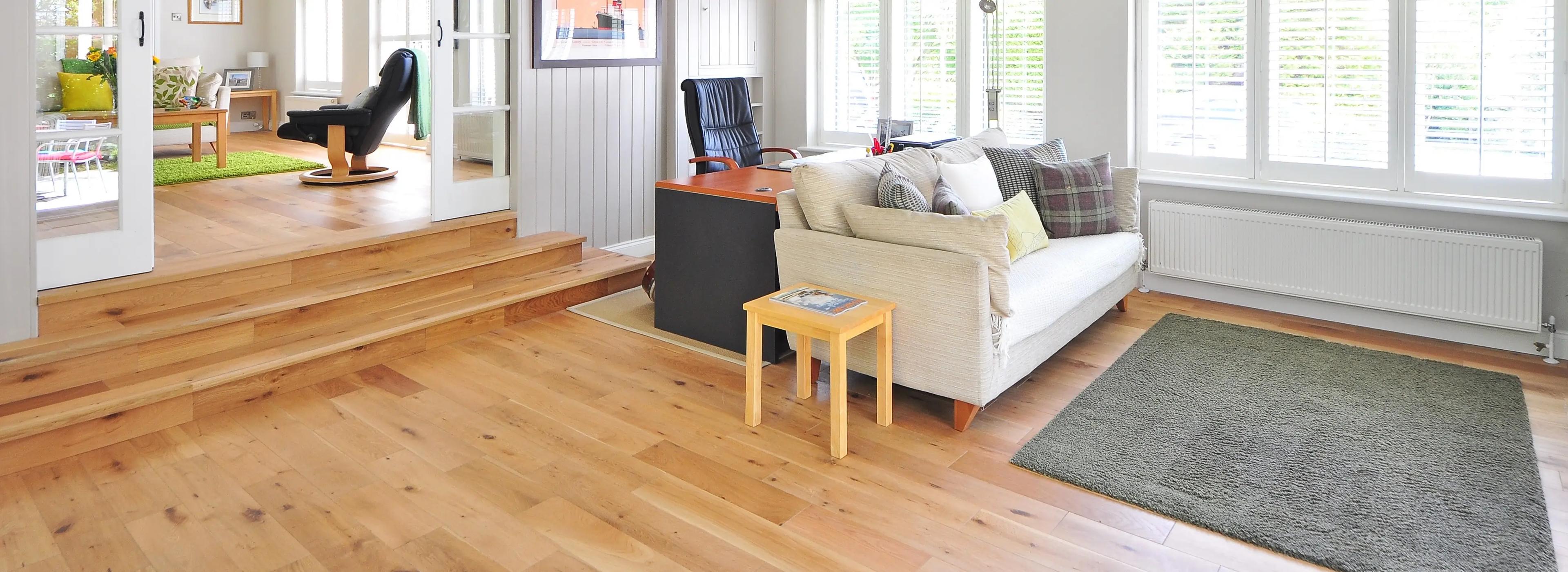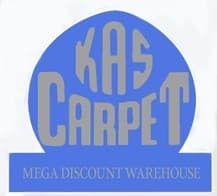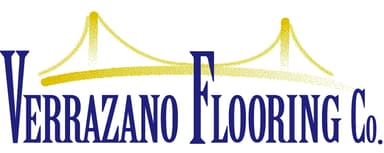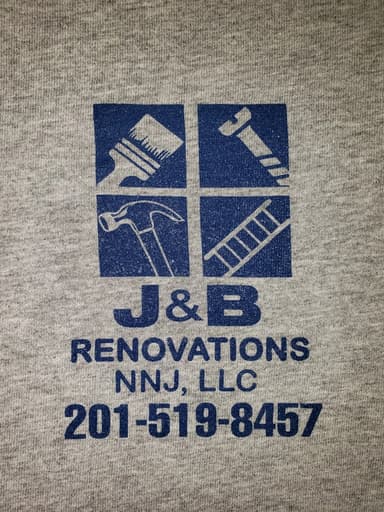We may be compensated if you purchase through links on our website. Our Reviews Team is committed to delivering honest, objective, and independent reviews on home products and services.

5 Best Flooring Companies in New York City, NY
The best flooring company in New York City is Floor Coverings International - East Brunswick.
Get matched with a top local pro
Join the 6,755 people who have received a free, no-obligation quote in the last 30 days
- Fact Checked
Fact checked by one of our trusted team members.
- Updated 2024-04-18 00:00:00
Historic and picturesque neighborhoods define New York City, and residents strive to preserve the community's history. Whether you're replacing aging carpet or restoring original hardwood floors, a local flooring company can help you get the job done. These New York City, NY flooring installers offer a comprehensive selection, excellent value, and a knowledgeable team.
5 Best Flooring Companies in New York City
Brands are algorithmically curated from a database of local service providers near you. We require a minimum number of Google reviews and average ratings for provider inclusion.

Floor Coverings International - East Brunswick
Ratings are based on our detailed proprietary methodology and review standards.
Based on 20 reviews

LL Flooring
Ratings are based on our detailed proprietary methodology and review standards.
Based on 47 reviews

Kas Carpet Showroom
Ratings are based on our detailed proprietary methodology and review standards.
Based on 1034 reviews

Verrazano Flooring Co.
Ratings are based on our detailed proprietary methodology and review standards.
Based on 233 reviews

J&B Renovations Nnj Llc - bathroom, kitchen, basements, doors, windows
Ratings are based on our detailed proprietary methodology and review standards.
Based on 16 reviews
Facts about New York City
- Average Max Temperature:60°F
- Average Min Temperature:46°F
- Average Daily Precipitation:0.13”
- Median Home Size:1,356 sqft
- Homeownership Rate:37.6%
- Most Popular Flooring Type:Hardwood
Popular Types of Flooring
There's a flooring material for every design preference and price point. In this section, we'll break down the most common types.
Hardwood Flooring
Homebuyers across New York City seek out hardwood flooring for its beauty and durability. It's available in several varieties to accommodate different designs, from oak and maple to cherry and walnut. However, it's one of the most expensive flooring materials and requires consistent maintenance. At a minimum, you'll need to use specialty cleaning products regularly and restore its finish every few years. Since it's susceptible to water damage, it's also not suitable for basements, laundry rooms, or bathrooms.
Engineered Wood Flooring
Engineered wood gives you the aesthetic of hardwood without the demand for regular maintenance. They use a plywood foundation with a layer of real hardwood on top – ultimately saving you money. Despite the lower retail cost, it might feel more hollow to walk on, and the thin hardwood layer can only be refinished a single time. That said, its lower propensity to warp could still make it an intelligent investment.
Laminate Flooring
Laminate is another cost-effective flooring option, consisting of a particleboard base, wood or tile finish, and protective plastic coating. It's easy to clean, scratch-resistant, and available in a variety of different colors and styles. However, it chips easily and is susceptible to moisture damage.
Vinyl Flooring
Vinyl flooring has superior moisture and fading resistance and is easy to maintain. Popular options include luxury vinyl plank (LVP) and luxury vinyl tile (LVT), with both having equal strength and long-lasting nature depending on the model you buy. The price for installing vinyl flooring sits comfortably between wood and laminate.
Tile Flooring
Tile flooring is a great choice for kitchens, bathrooms, and other moisture-prone areas. It offers years of life with low upkeep requirements, and is available in many colors, materials, and patterns. However, it might not work well for bedrooms and living rooms since it's cooler and less grippy to walk on. The cost differs between styles, with porcelain carrying a higher price tag than ceramic.
Stone Flooring
Granite, marble, travertine, and sandstone aren't just for the outdoors. Inside, they can give you a bold look and unparalleled water resistance. Despite its unique flair, it's not easy to clean, and long-term maintenance could be a bit more expensive.
Linoleum Flooring
Linoleum is made from linseed oil and cork and can endure for decades if maintained properly. It’s an economical option with many design possibilities. However, the softer material is easier to dent or scratch, and it's known to fade with sun exposure. It’s also not suitable for areas with excess moisture like kitchens and bathrooms.
Carpet
Carpet is the most affordable flooring option. It can make a space feel more cozy and is great for muffling sound. You don’t have to fret about scratches or dents, and the cushioning makes it a safer choice for babies and toddlers. However, the fibrous material easily holds onto stains, moisture, and odors, which isn't ideal for pet owners or allergy sufferers.
How to Choose a New York City Flooring Company
Choosing the proper installer will impact your new floor's quality. We recommend evaluating different companies using the following criteria.
Reputation and Reviews
The most crucial thing to research about any flooring company is its reputation. You can learn more about previous clients' experiences from review sites like Trustpilot, the Better Business Bureau (BBB), Yelp, and Google. Every flooring installer will have a mix of compliments and criticism online. If a company addresses issues in a constructive and satisfactory way, it's generally a good sign. However, if you find more outright complaints than compliments, it's better to steer clear.
Portfolio and References
Most flooring companies keep portfolios of their past projects. We recommend requesting a copy so you can look over the crew's workmanship. It's also good practice to ask for references from previous customers. Once you have their contact information, get in touch and ask about their experiences.
Specialization and Services
Look for a provider that specializes in the type of flooring you're interested in. For example, a crew might be experienced with carpet but not hardwood. Equally important is an installer's service offerings. At the very least, it should offer cleanup and haul-away for your old flooring materials. However, if you're feeling lost in all the style, material, and color choices, you can also look for companies with design teams.
Cost
Cost is crucial to consider, but it should be less important than quality in your selection process. We recommend getting at least three different quotes for your flooring job to compare pricing and workmanship. Many companies offer on-site and online estimates to streamline the process.
Warranties and Guarantees
You should look for two different warranties in your company search. A manufacturer's warranty protects you in case of a product defect, while an installer's warranty covers workmanship. While a few manufacturers and contractors have lifetime warranties, most are still restricted to a specific time period (often ten years.) If you'd like additional coverage, you might be able to pay extra for an extended warranty.
Estimated Timeline
Time management is key to a successful flooring job. Before you sign a contract, request an estimated timeline and inquire about what issues could impact the project. If a company guarantees it'll finish the job by a certain deadline, get that guarantee in writing and convey your expectations clearly as the work progresses.
Frequently Asked Questions about Flooring in New York City
Generally, flooring installation costs in New York City range from $0.60 to $4.00 per square foot. An estimate will factor in your space's size, the type of floor you'd like, and the job's complexity. You can discover the best price by requesting multiple estimates and comparing them side by side.
Most homes in New York City have a mix of different flooring types, but the most popular in the area is hardwood.
New York doesn't require flooring companies to get a state license, but cities often choose to require licenses of their own. We encourage you to contact your local government office for more information on contractor licensing. If your city doesn't require licensure, ask each company about its private certifications, each of which can demonstrate professionalism and skill in the trade.
Online retailers have lower operating costs, so it could be cheaper in many cases. However, you'll likely have a better experience with a local company. That way, you can see and touch different flooring choices, and the representatives are likely to be more attuned to New York City customers' needs.
Here are a few signs it's time to replace your old flooring:
- Uncontrollable mildew or mold growth
- Holes, scratches, or dents
- Increasing space between tiles or planks
- Spots that feel loose or unstable
- Water damage
- Heightened squeakiness
